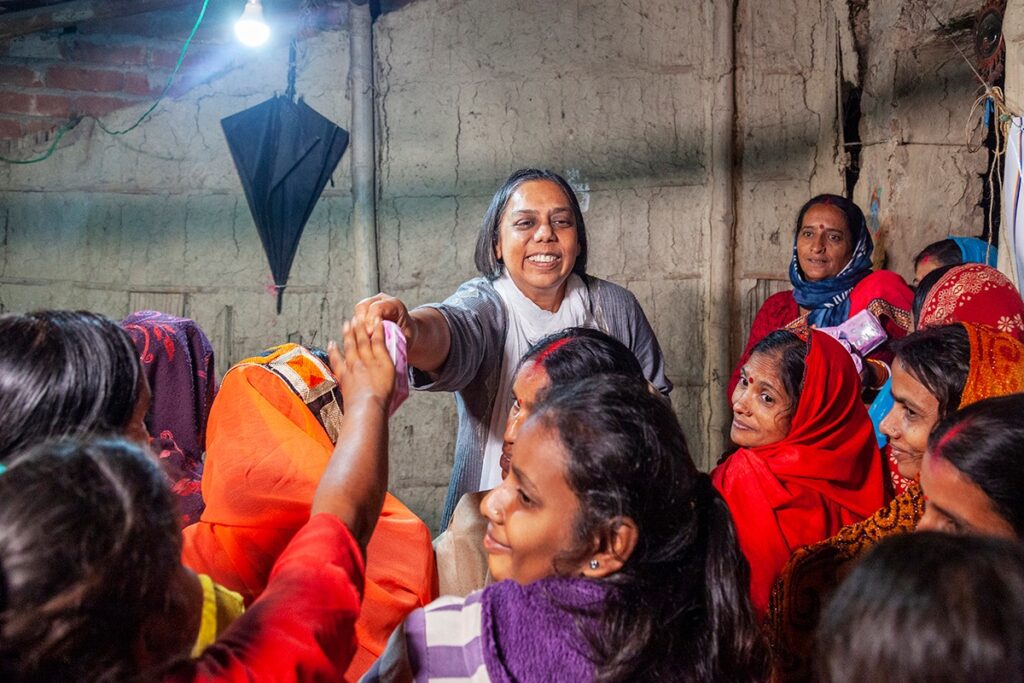
Today we are hearing from Ruchira Gupta, an Emmy winning journalist and founder of the anti sex trafficking NGO Apne Aap, that empowers women and girls to exit systems of prostitution.
She has been awarded the French Ordre National du Mérite, the Clinton Global Citizen Award, and the UN NGO CSW Woman of Distinction, among other honors, for her contribution to the establishment of the UN Trafficking Fund for Survivors, the passage of the US Trafficking Victims Protection Act and her grassroots activism with Apne Aap.
Ruchira has worked for the United Nations in Nepal, Thailand, Kosovo, Iran, and the USA. She occasionally teaches at the New York University’s Center for Global Affairs as a visiting faculty.
Ruchira divides her time between New York and Forbesganj, her childhood home in the foothills of the Himalayas, where she furthers the work of Apne Aap.
Apne Aap:
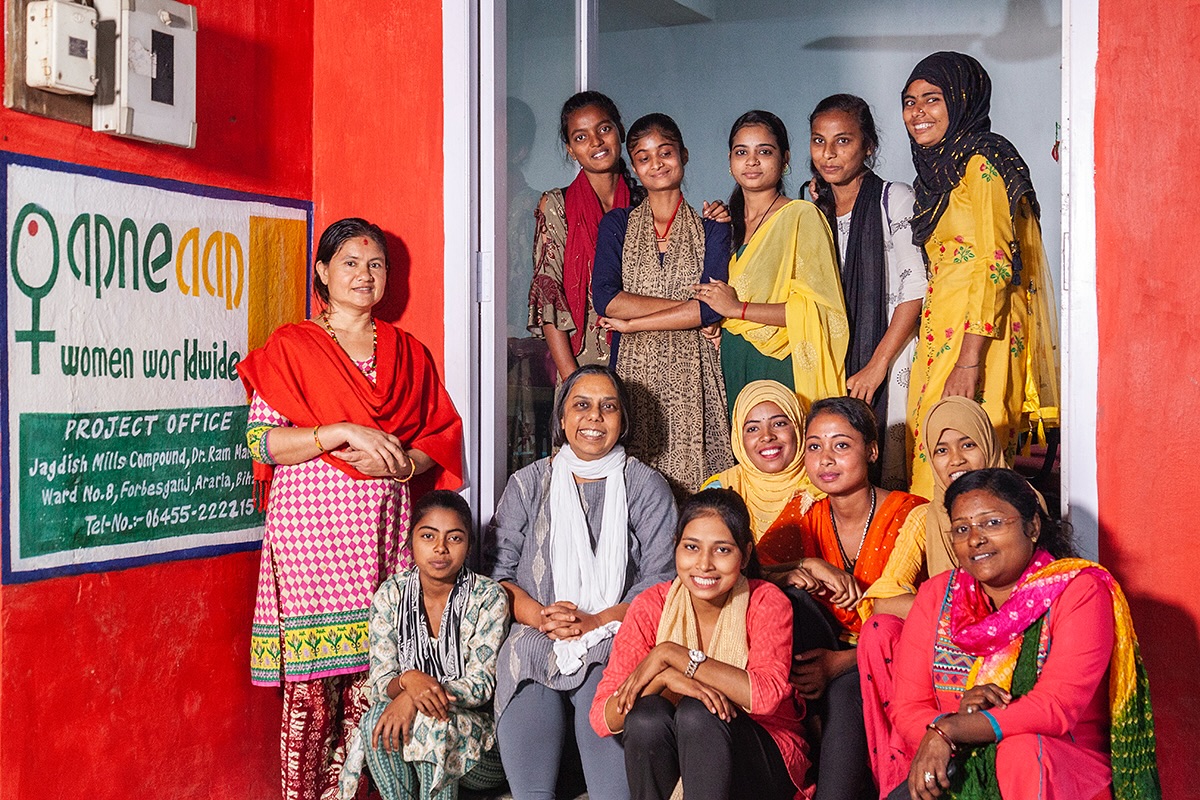
Apne Aap is a grassroots movement dedicated to ending sex trafficking and empowering women and girls to live with dignity. Founded by journalist-turned-activist Ruchira Gupta and a group of women in prostitution, Apne Aap works to dismantle the systems that enable trafficking by advocating for legal reform, providing direct services to survivors, and creating sustainable livelihood alternatives.
Our mission is to create a world in which no child is bought or sold. Our method to achieve this is by ending sex trafficking through increasing choices for vulnerable and at-risk girls and women while deterring the demand for prostituted sex.
Can you tell us about Apne Aaap and the human rights issues you focus on?
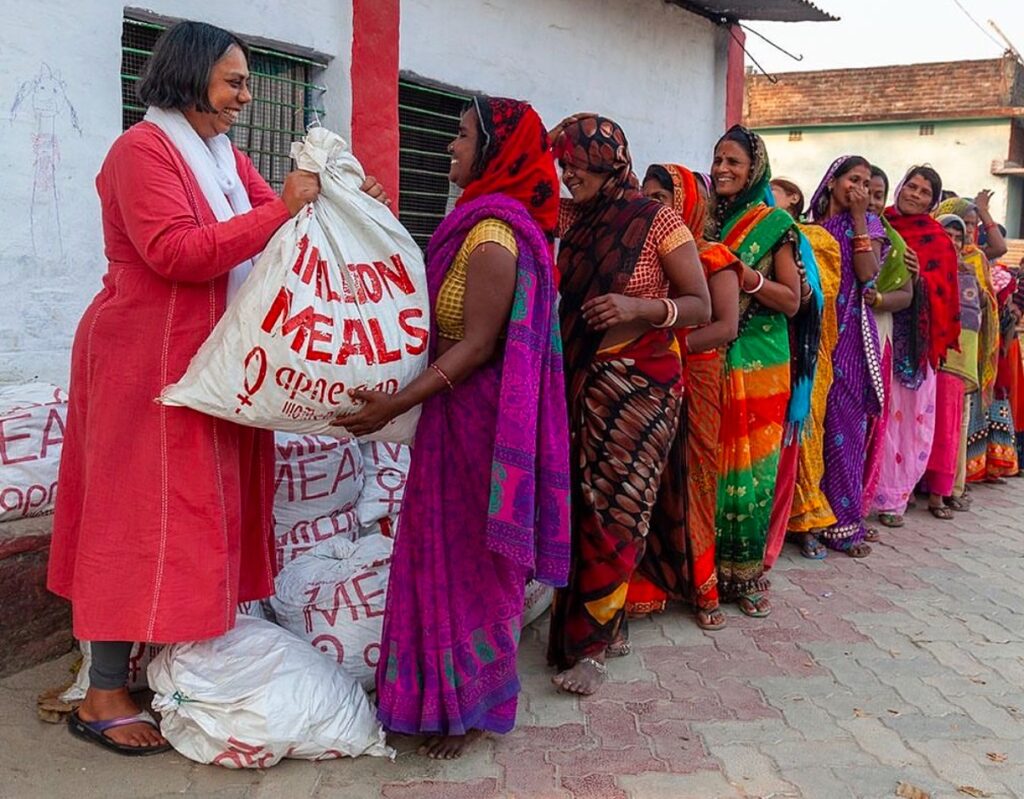
Apne Aap was founded with a vision of a world where no child is bought or sold. Our work is rooted in the belief that empowering women and girls with resources and opportunities can dismantle the systems that perpetuate sex trafficking. To achieve this, we developed the Ten Asset Approach, a survivor-centered strategy that provides women and girls with the tools to reclaim their rights, access justice, and create a future free from exploitation.
We go into red light areas and open a community centre, Then our team members go house to house and enrol women and girls to become members of the Apne Aap community centre. Once a woman or girl joins, we work to ensure that she gains access to the ten assets of safe spaces, education, self-confidence building, political power, government-issued IDs, government subsidies, legal support, savings and bank accounts, livelihood linkages, and community support networks. These ten assets serve as stepping stones toward independence and dignity, breaking the cycle of vulnerability that leads to trafficking.
Each of these ten assets is directly linked to the Universal Declaration of Human Rights (UDHR) and the United Nations Sustainable Development Goals (UN SDGs).
What inspired you to start Apne Aap?
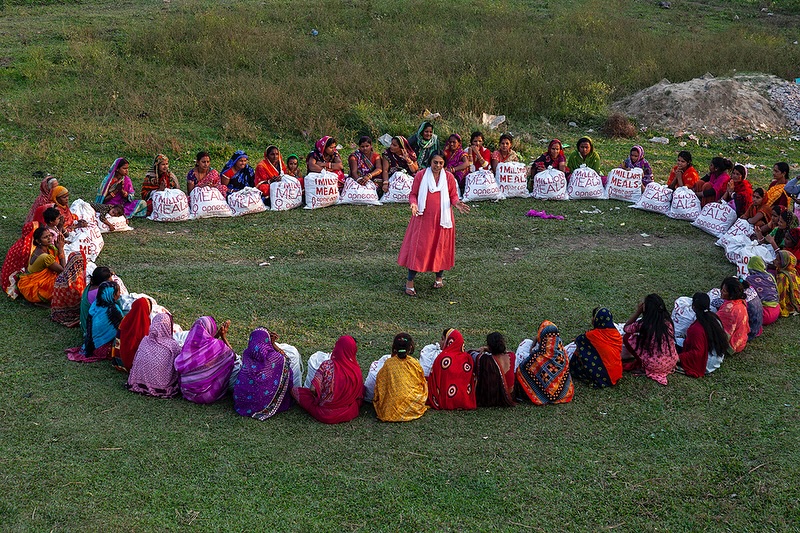
Our journey began when I was making an Emmy-winning documentary, The Selling of Innocents, which exposed the trafficking of women and girls from Nepal to India. The survivors in the film asked for help beyond just telling their story, they wanted real change. That’s when Apne Aap was born, founded with a vision of a world where no girl is sold into prostitution. Our work is driven by the voices of survivors themselves.
Why is this work so important in today’s world?
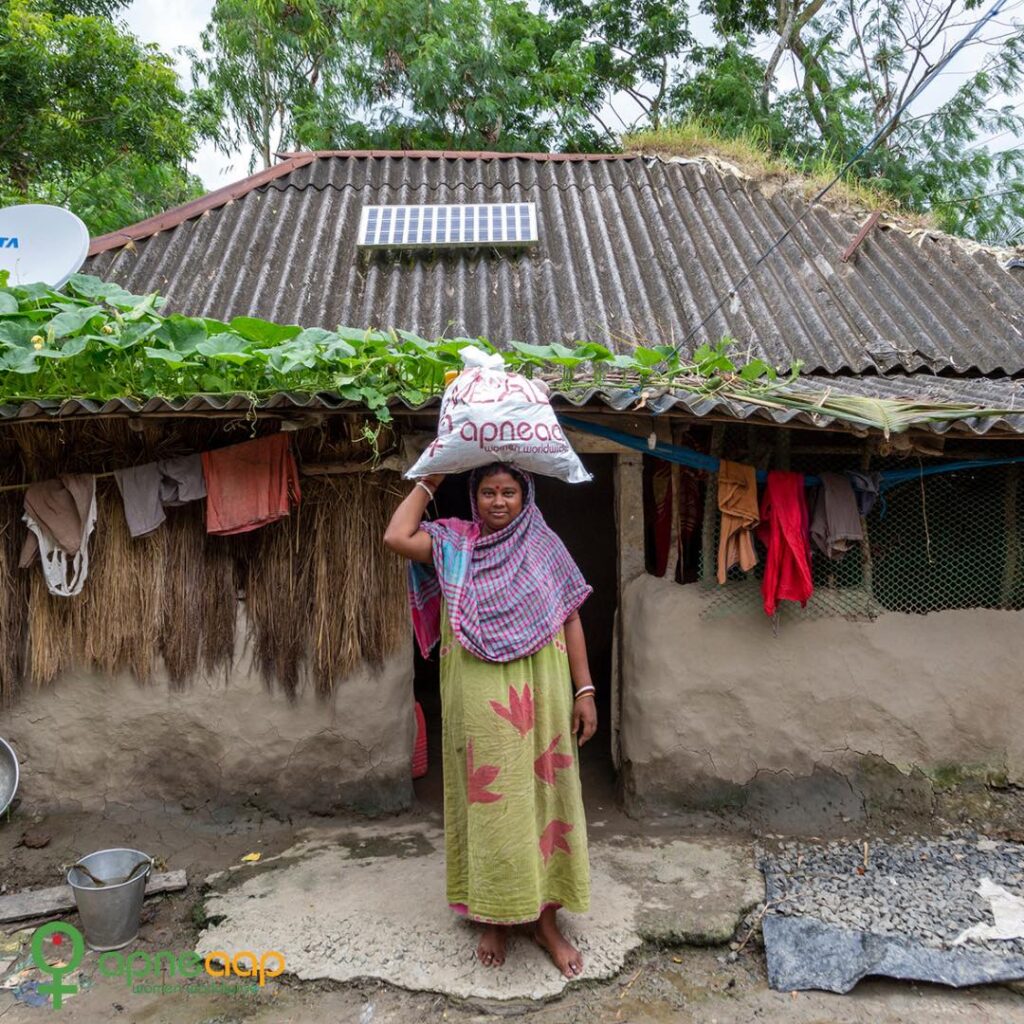
Sex trafficking is one of the most egregious human rights violations, yet it continues to flourish globally. According to the United Nations Office on Drugs and Crime (UNODC), human trafficking is the second largest organized crime in the world and nearly 72% of human trafficking victims worldwide are women and girls, with sexual exploitation being the most common form of trafficking. The UNODC also says only one in five trafficking cases results in a conviction, making impunity a major challenge in combating human trafficking.
In a world where women and girls are still seen as commodities, our work is more urgent than ever. Traffickers have adapted to technology, using social media and online platforms to exploit vulnerable populations. We are fighting back by advocating for stronger policies, educating communities, and supporting survivors in reclaiming their rights and futures. Apne Aap continues to advocate for stricter enforcement of anti-trafficking laws and survivor-centered justice.
How can people support your work?
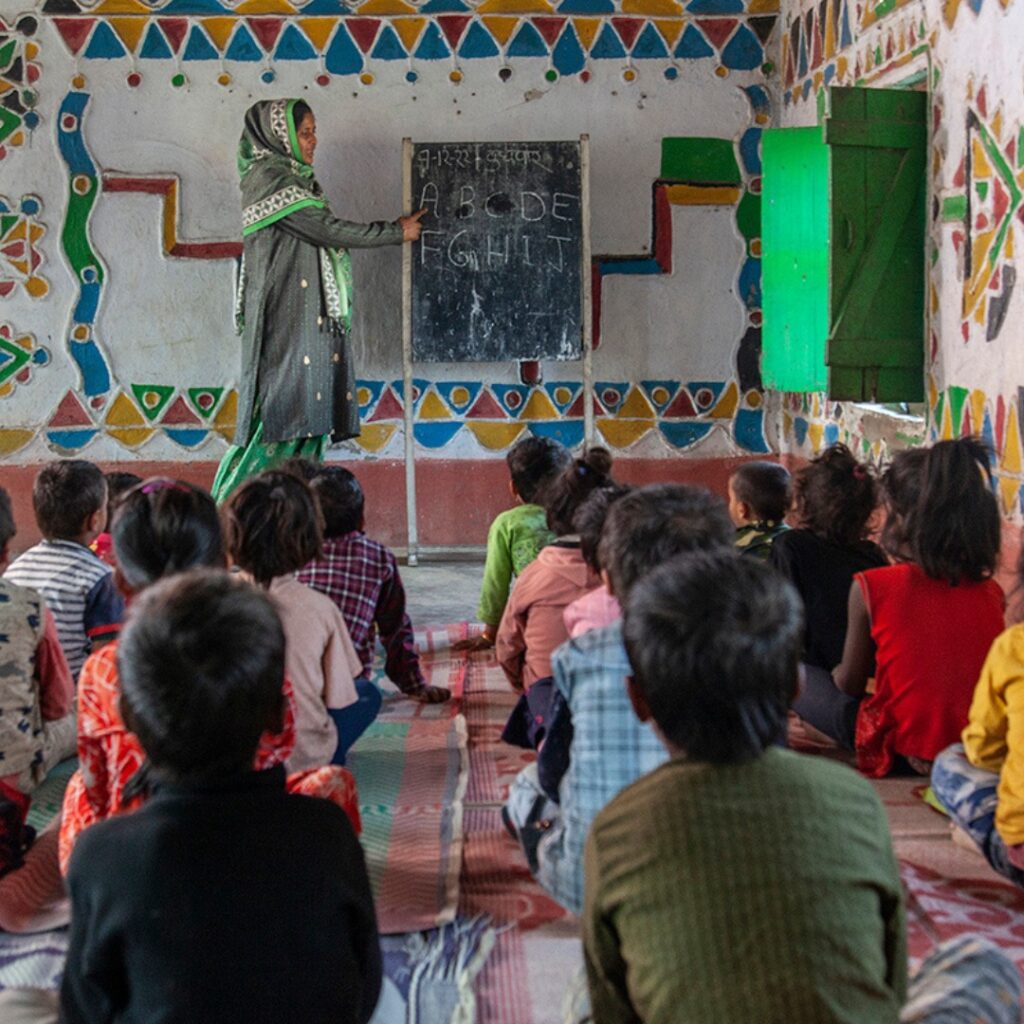
- Volunteer: Join our movement by offering your time and skills. You can email internmanagement@apneaap.org for opportunities
- Advocate: Raise awareness about trafficking, sign petitions, and push for policies that protect women and girls. Sign my freedom pledge and share on your social media at ruchiragupta.com
- Sponsor a Girl: Help a girl escape trafficking and build a better future through education and mentorship. apneaap.org/donate
- Educate: Share the book I Kick and I Fly ( available in any bookstore or amazon) and/or the movie The Selling of Innocents on ruchiragupta.com with your friends, colleagues and family
Is there a particular message you’d like to share with our readers?
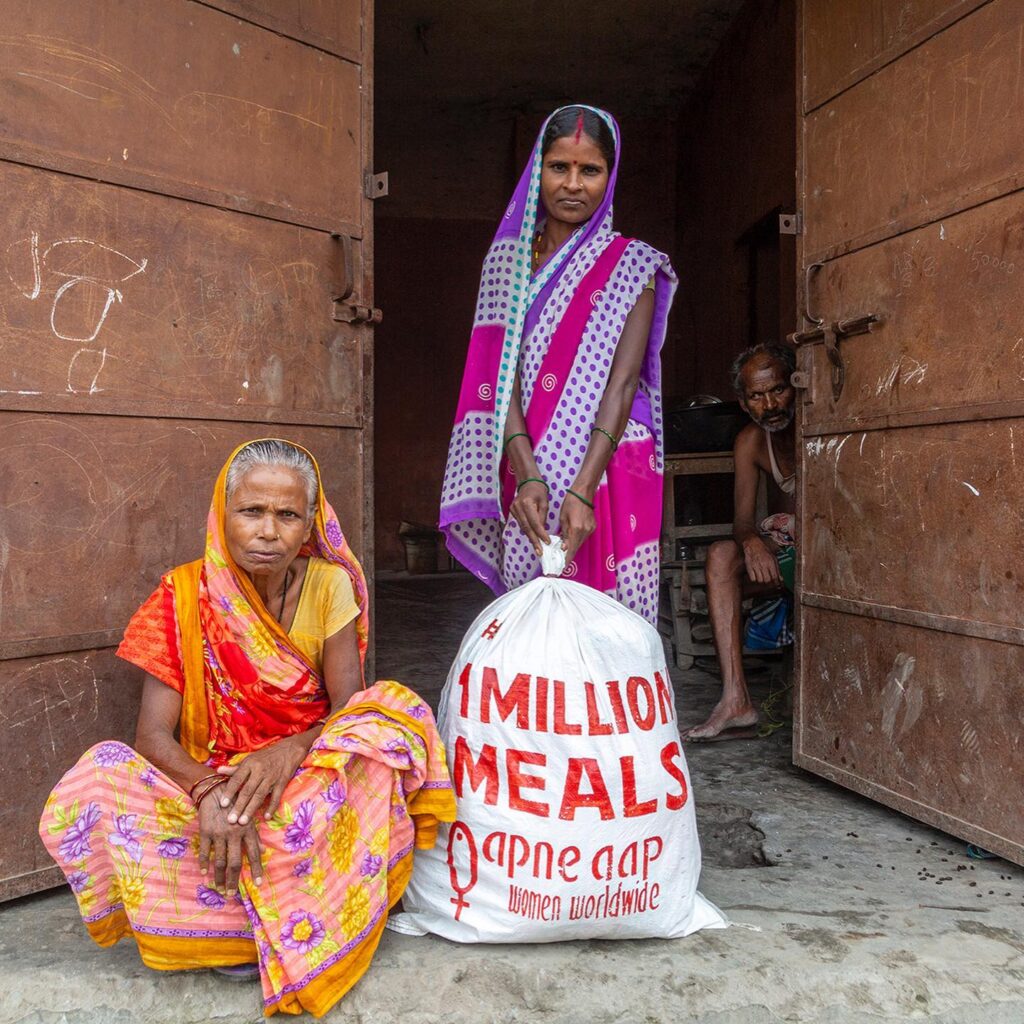
Our bodies are not for rent or sale. No girl is born to be prostituted. Every girl deserves freedom, education, and a life of dignity. Trafficking is not inevitable, it is preventable. According to UNODC, 90% of trafficking victims come from marginalized and impoverished communities, making prevention and intervention crucial. Join us in fighting for a world where no girl is for sale.
Learn more at: www.apneaap.org and follow us on Instagram, Twitter, and Facebook.
Looking for more human rights resources? Explore The Global Humanitarian.
Comment, subscribe, and follow me on Instagram @the.global.humanitarian
Please note: the views and opinions expressed on this blog are that of my own and do not represent the opinions of any agency mentioned.